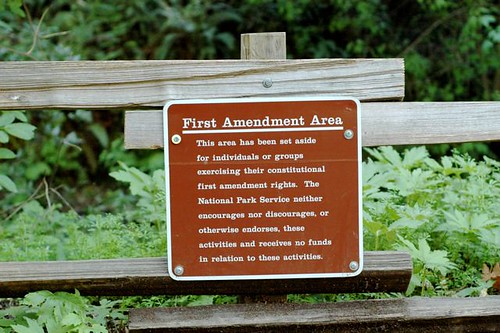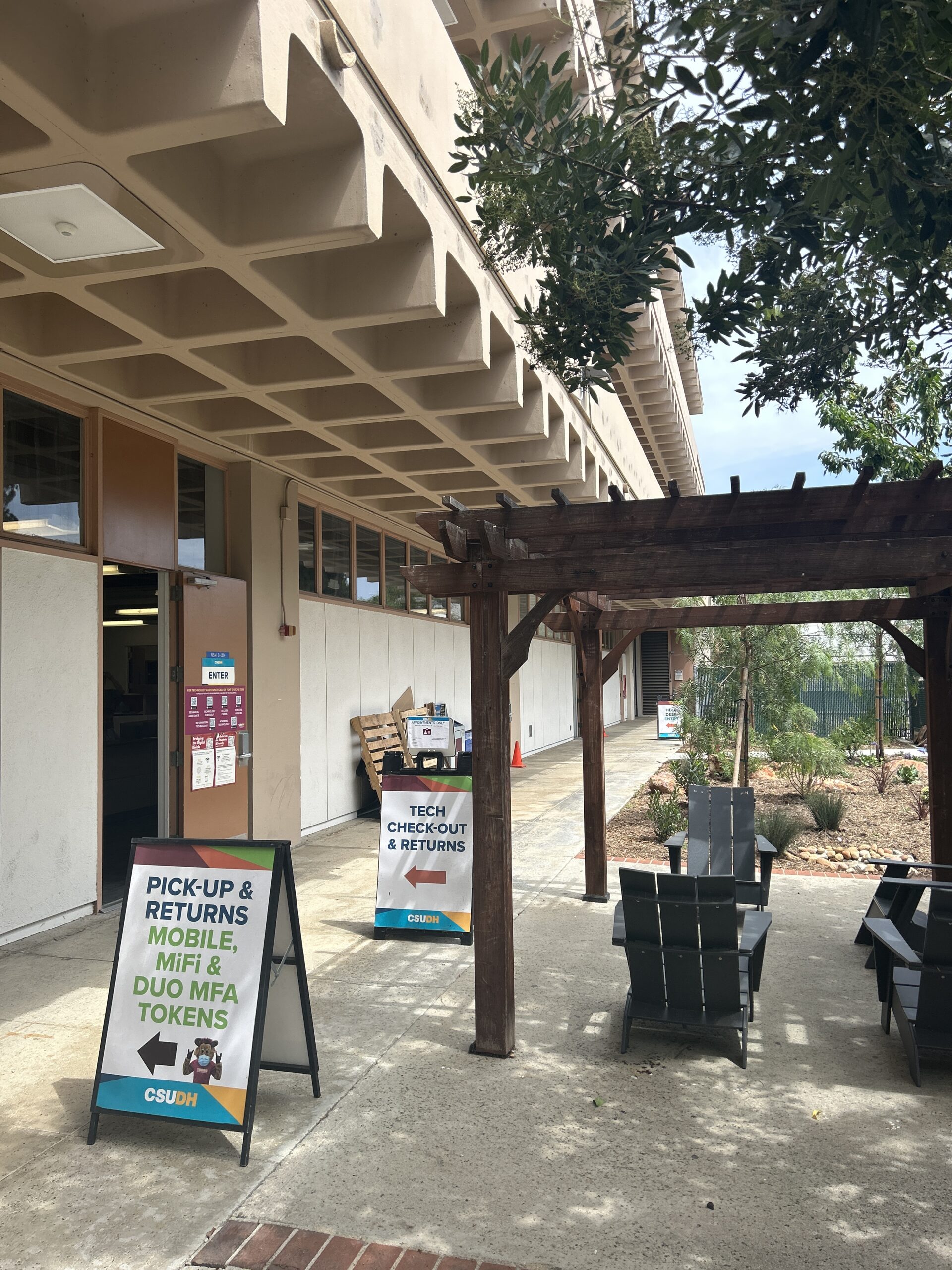By CSUDH Bulletin Staff
The First Amendment, and what it protects, can be a little tricky; we know that it protects the right NOT to speak; students being able to wear anti-war symbols at school; and our personal favorite, the ability to use certain offensive words and phrases to convey political messages.
But what does freedom of speech mean in the following context:
You’re walking to class, weaving through crowds, it’s business as usual. Suddenly you’re stopped by a young woman with a polite smile on her face as she gestures toward you and says, “Have you heard about God, Mother?”
This is a scenario that’s played out on campus in the last few weeks. Some students have expressed concern over the proselytizing of members of a particular religious sect with a non-traditional name, non-traditional beliefs (at least to those of us on the Bulletin staff) and an approach to communicating with students that some feels cross the line from enthusiasm into annoyance.
But here’s the tricky part: Freedom of Speech is freedom for ALL speech, whether one agrees, understands or doesn’t want to be bothered with that speech. Even hate speech, a kind of expression members of this sect have not engaged in, are protected by the First Amendment. That type of speech is ugly to many, and few could argue it is expression with the highest ideals in mind, but as long as the practitioners of that speech are not doing anything illegal, they are protected.
But that doesn’t mean anyone can articulate whatever speech they like anywhere on this campus. CSUDH has a designated zone where outside organizations or individuals can pitch their tents, so to speak. According to the important campus policies on the campus’ student conduct website, the “Free Expression Area,” ,which is located on the west side of the Loker University Student Union, allows any group or individual to express their opinion from] 10 a.m to 10 p.m as long as they gain a permit from the office of Procurement, Contracts, Logistical & Support Services in Welch Hall.
This campus is a very diverse place with a vast array of people who come from all walks of life carrying different thoughts and opinions. And we believe that diversity should be reflected in groups not affiliated with us to have the same opportunity to express their views. Although controversial or hateful opinions may ensue, their speakers have a right to express them.
Now, if speakers in the free speech zone get in the way of students trying to get to their classes or anywhere else on the campus, that’s another matter.
“ If they block your path, now that’s something the police department can look into, “ David L.Hall, a CSUDH University Police Lieutenant, said.
And if verbal expression escalates into a physical confrontation? That is also something that should be relayed to the police. But remember: why a person shoves or throws the first blow is less important, legally speaking, than who is doing the shoving or hitting.
So engage, question and challenge if you like; or shake your head no if someone approaches you to talk. Just as there is freedom of speech, we also have the freedom to not have to take notice of what others are saying.
“If you don’t want any part of them, just walk away,” Hall says.


